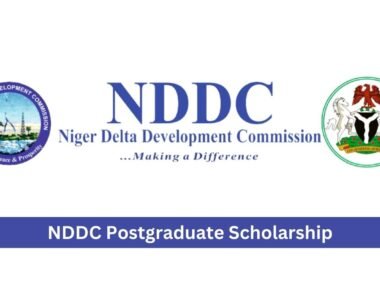If you’re living with a rare disease—or love someone who is—you know how challenging the journey can be. From managing daily health concerns to navigating a medical system that often doesn’t have clear answers, the path is rarely simple. Add the cost of college or vocational school on top of that, and it can feel overwhelming.
That’s where Rare Disease Scholarships 2025 come in—not just as financial aid, but as recognition of your strength, perseverance, and potential. These scholarships are designed specifically for students who are facing rare medical conditions, offering more than money: they provide community, validation, and a platform for your story.
You’ve already beaten the odds in so many ways—now let’s find the support to help you thrive in school and beyond.
Overview of Top Rare Disease Scholarships 2025
Let’s explore the leading opportunities available this year:
RAREis Scholarship Fund
-
Award: $5,000 per recipient
-
Total Awards: Up to 104
-
Administered by: Scholarship America in partnership with the EveryLife Foundation for Rare Diseases
-
Application Period: March–April 28, 2025
-
Eligibility: U.S. residents 17 or older with a verified rare disease diagnosis; attending or planning to attend a U.S.-based institution
-
Renewable: Yes
Eligibility At-a-Glance
Understanding whether you qualify is the first step to successfully applying for Rare Disease Scholarships 2025. While each scholarship may have slightly different criteria, there are core requirements that are consistent across most programs:
Common Eligibility Criteria:
-
Diagnosis of a Rare Disease: Applicants must have a medically verified diagnosis of a rare disease. For the RAREis Scholarship, this involves submitting a signed verification form from a licensed physician. A Spanish version of the form is also available.
-
Minimum Age: Most programs, including RAREis, require applicants to be at least 17 years old at the time of application.
-
Residency: Applicants must be legal residents of the United States.
-
Enrollment in a Postsecondary Institution: You must be enrolled—or planning to enroll—in an accredited college, university, or vocational program in the U.S. during the 2025–2026 academic year.
-
Academic Standing: While GPA requirements vary, many rare disease scholarships focus more on personal resilience and community impact than on perfect grades.
-
Essay Requirement: Applicants are usually required to submit a personal essay that reflects their journey with a rare disease and their future goals.
-
Optional Materials: Some scholarships may request recommendation letters, proof of financial need (FAFSA), or academic transcripts.
Re-application Opportunities:
Many scholarships, including the RAREis Scholarship, allow recipients to reapply annually, offering ongoing support throughout a student’s academic career. In some cases, you can receive the award for up to four consecutive years, provided you maintain eligibility.
Timeline & Important Dates
Timing is critical when it comes to winning scholarships. Missing a deadline can mean waiting another year.
Start preparing documents in February, before the portal opens. Essays, diagnosis verification forms, and transcripts take time to gather—and you want to submit a polished, complete application before the April deadline.
Application Essentials: Essays, Verification, and Beyond
Applying for Rare Disease Scholarships 2025 requires more than just meeting the eligibility requirements—it’s about standing out through your story, preparation, and documentation. Here’s what you’ll typically need to submit a strong application:
Personal Essay
Your essay is often the heart of your application. The RAREis Scholarship, for example, asks students to reflect on how their rare disease has impacted their life, education, and future goals. In 2025, the prompt may focus on:
-
Challenges you’ve overcome in school due to your health
-
Advocacy work or leadership in your community
-
How receiving a scholarship would help you pursue your dreams
Tips for a Strong Essay:
-
Be honest and specific—highlight unique experiences and growth.
-
Show how you plan to use your education to make an impact.
-
Tailor the essay to the scholarship’s mission and values.
Diagnosis Verification Form
A signed form from a physician confirming your rare disease diagnosis is mandatory. The form for the RAREis Scholarship is provided directly in the application and must be submitted with your package.
Pro Tip: Contact your doctor early—especially if forms need to be translated or delivered via mail.
Strategic Tips: How to Apply Smarter in 2025
With only a few major national rare disease scholarships available each year, maximizing your strategy is key to increasing your chances of success.
Apply Broadly and Creatively
Don’t stop at just one application. Combine rare disease-specific scholarships with:
-
Disability scholarships
-
Health condition-based awards
-
General academic and community leadership scholarships
Many disease-specific nonprofits (like the Lupus Foundation, Marfan Foundation, and Cystic Fibrosis Scholarship Foundation) offer small but meaningful awards that add up.
Use Reputable Scholarship Portals
Maximize your search by creating profiles on:
-
Scholarship America Hub (partner for RAREis)
-
Scholarships.com – use filters for health and diagnosis-related awards
-
Bold.org – niche and essay-based scholarships
Keep a Centralized Tracker
Create a spreadsheet or use a scholarship tracking tool with columns for:
-
Scholarship name
-
Deadline
-
Materials required
-
Submission status
-
Notes on reapplying next year
Spotlight: RAREis vs. Other Rare Disease Grants
When comparing scholarship opportunities available in 2025 for students with rare diseases, the RAREis Scholarship Fund remains a standout program. However, it’s helpful to understand how it compares to other condition-specific or nonprofit-based grants so you can decide where to focus your efforts—or how to apply to multiple opportunities strategically.
The RAREis Scholarship offers a substantial $5,000 award to up to 104 students each year. It’s open to individuals aged 17 or older who have a verified rare disease diagnosis and are enrolled in any accredited U.S. college, university, or trade school. What sets it apart is its broad eligibility: it doesn’t focus on one specific disease and is open to any rare condition recognized by the medical community. Additionally, recipients can reapply and receive funding for up to four years, which provides long-term financial support.
In contrast, many other rare disease scholarships are smaller in scale, typically awarding between $500 and $2,500. These are often run by disease-specific foundations—like those for cystic fibrosis, lupus, or Marfan syndrome—and usually support a limited number of students each year, often between one and ten recipients.
Overall, the RAREis Scholarship stands out for its inclusivity, award size, and repeatability.
Student Success Stories & Recommendations
Hearing from past recipients offers both encouragement and insight.
“The RAREis Scholarship from the EveryLife Foundation has been an invaluable opportunity for me as a Saint Louis University Law Scholar pursuing a career in health law. This scholarship has not only alleviated the financial burden of higher education, but fueled my passion for working toward meaningful policy changes. I now feel equipped and empowered to advocate for others living with chronic conditions like mine.”
These stories highlight that Rare Disease Scholarships 2025 aren’t just about money—they’re about purpose, community, and long-term impact.
Recommendation: If you’re awarded a scholarship, consider sharing your story. Many funders look for future ambassadors and advocates to help spread awareness.
Common FAQs (2025-Focused):
Here are the most frequently asked questions about Rare Disease Scholarships 2025, with answers tailored to this year’s programs:
❓ Can I apply if I’m undocumented or a DACA recipient?
Unfortunately, most U.S.-based rare disease scholarships—including RAREis—require applicants to be legal U.S. residents or citizens. However, some community-based or private scholarships may not have this restriction, so it’s worth exploring local foundations and crowdfunding.
❓ What types of schools are eligible?
Eligible institutions typically include:
-
Four-year colleges and universities (public or private)
-
Community colleges
-
Trade and vocational schools
-
Online accredited programs
Make sure the school you attend is recognized by the U.S. Department of Education.
❓ Can graduate students apply?
Yes. One of the strengths of #RAREis is its nontraditional inclusivity. Undergraduate, graduate, and trade students all qualify—as long as they meet the other eligibility requirements.
❓ Can I use the scholarship funds for living expenses or medical bills?
Most rare disease scholarships—especially RAREis—send funds directly to your educational institution, where they’re applied to tuition, fees, and educational expenses. However, this often frees up personal funds that you can redirect toward healthcare and living costs.
Who is Eligible for the Rare Disease Scholar Award?
To qualify for the Rare Disease Scholar Award, applicants generally need to meet the following eligibility criteria:
-
Medical Diagnosis: A confirmed diagnosis of a rare disease, usually verified through a signed physician form or medical documentation.
-
Age Requirement: Most programs, including similar awards like RAREis, require applicants to be 17 years or older.
-
Academic Enrollment: You must be currently enrolled or planning to enroll in an accredited U.S. college, university, or vocational program.
Award Benefits: What Recipients Receive
While exact benefits vary by program, recipients of the Rare Disease Scholar Award often receive:
-
Monetary Award: Ranging from $1,000 to $5,000+, depending on the specific program.
-
National Recognition: Being named a “Rare Disease Scholar” often brings prestige and visibility in patient advocacy networks.
-
Access to Advocacy Opportunities: Scholars may be invited to speak at conferences, join legislative advocacy efforts, or participate in rare disease panels.
-
Networking and Mentorship: Many programs offer access to mentors, rare disease leaders, and other award recipients.
-
Ongoing Support: Some awards are renewable annually, supporting the student throughout their academic journey.
Conclusion
At the heart of Rare Disease Scholarships 2025 is one powerful idea: your diagnosis doesn’t define you, but your story matters. These scholarships exist to support students who have shown courage in the face of medical uncertainty and have dreams that extend far beyond their health condition.
Applying for these awards isn’t just about covering tuition. It’s about being seen. It’s about joining a growing movement of young people who are living boldly, studying passionately, and making a difference in the rare disease community.
Whether you apply for the RAREis Scholarship, a condition-specific grant, or a local program, know this: you’re not alone. There are organizations and people who believe in your potential—and who are ready to invest in it.
So take that next step. Share your story.







